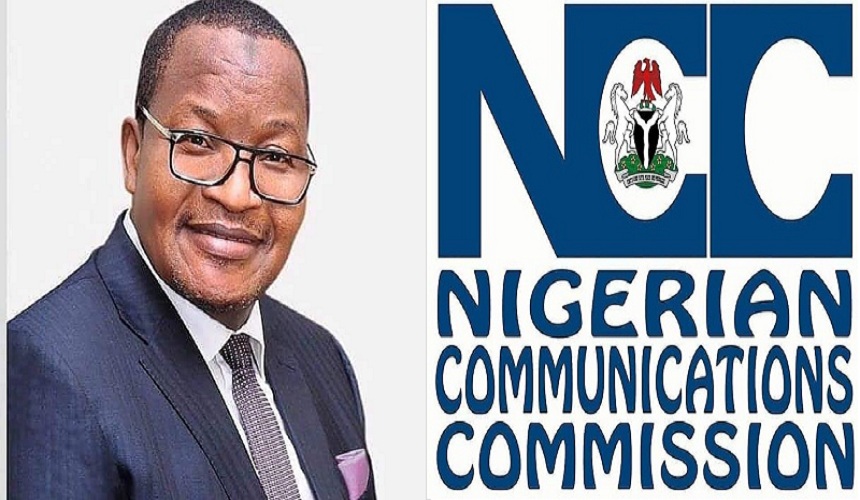In a bid to achieve greater effectiveness in the telecoms sector and to strengthen the protection of telecoms consumers and other stakeholders, the Nigerian Communications Commission (NCC) said it undertook a revision of the framework stipulating the processes for resolving consumer complaints arising from service delivery by telecoms operators.
The framework tagged: Complaints Categories and Service Level Agreements (CC/SLA), was revised by the Commission in November 2019 at a programme attended by representatives of telecoms operators, consumers and other consumer rights advocacy groups in the country.
Executive Vice Chairman (EVC) of NCC, Prof. Umar Danbatta, said: “The 2019 review of the CC/SLA, in collaboration with operators and other stakeholders, was essentially to strengthen effective and prompt resolutions of consumers complaints by reviewing the timelines, broaden and streamline complaint categories and establishing applicable sanctions on operators that fail to meet the timelines stated for resolving issues related to the services delivery to their consumers.”
In a statement signed by Dr Ikechukwu Adinde, NCC’s Director of Public Affairs, the Commission said that in the reviewed CC/SLA, with respect to the broad category of Quality of Service and Quality of Experience (QoS and QoE) in the data segment, when a telecom subscriber experiences fluctuation in service, such as instability in the Internet services, the subscriber shall be contacted by the service provider within four hours of reporting the incident and the disruption shall be restored within 72 hours.
The statement noted that “If the matter is escalated to the Commission, the consumer is expected to receive feedback within two hours, while the Commission ensures the issue is resolved within 48 hours. Additionally, the subscriber shall be offered an apology and the expiry date of his data bundle shall be extended by the number of days the disruption lasted.
“Under the broad category, ‘Billing’, complaints connected to any unexplained change in account balance resulting in a drop in balance, due to overcharging subscriber’s account for calls, Short Messaging Services (SMS) and Multimedia Messaging Service (MMS), shall be resolved by the operator within 24 hours.
“Should there be a need by the subscriber to escalate the complaint to NCC, the Commission shall ensure the matter is resolved within 12 hours. The subscriber shall be notified of resolution and where applicable, compensated with five per cent of overcharged amount which is payable daily to the consumer for every 24hrs of default.
“Similarly, within the framework of QoS/QoE in the voice segment, the revised agreement stipulates that, when there is call interference or challenge with voice clarity, resulting in the inability of a subscriber to carry out an uninterrupted conversation, the subscriber shall receive a response from the service provider within four hours of reporting the incident and the service provider shall ensure the challenge is resolved within 72 hours.
“Should there be a basis for the subscriber to escalate the matter to NCC, the Commission shall revert to the subscriber within two hours of receiving the report and ensure that the matter is resolved within 48 hours in line with the Quality of Service (QoS) Regulations and the subscriber shall be communicated.”
The statement further noted that under the new CC/SLAs that have now come into force, in the case of Sales Promotion and Advertisement, when a subscriber does not receive (within the stipulated time) bonus or incentives won during promotions, the service provider shall resolve the matter within 12 hours of receiving the complaints, instead of 24 hours as stipulated in the hitherto existing categorisation and agreement.
It added that should the matter be escalated to NCC, the Commission shall ensure it is resolved within six hours in line with the Guidelines on Advertisement and Promotions, noting that as in all cases, the subscriber shall be communicated on steps taken towards resolution of complaints.
“Similarly, in the expansive category of Call Centre/Customer Care, the NCC agreed with stakeholders that when a subscriber is unable to connect to Call Centre or Service Provider Help Line, the matter shall be treated by the Service Provider within four hours of receiving the report.
“Where the matter is escalated to the Commission, NCC shall ensure that the issue is resolved within two hours of receiving the complaints, and steps taken towards resolution shall be communicated to the subscriber in all circumstances,” the NCC said in the statement.
The Commission said that on matters connected to faulty terminals, such as defective devices that stifle a subscriber’s ability to use phones, modems, routers and related devices appropriately, the Commission said such incidents shall be resolved based on Terms and Conditions for all devices.
In the meantime, Prof Danbatta has stated that matters relating to Base Transceiver Stations (BTS), such as problems arising from installation and location of base stations, masts or towers, shall be resolved by the concerned operator(s) within the 48 hours, as stated in the revised CC/SLA.
He said that in case the Commission is notified by the affected consumer, the matter shall be referred, immediately to Commission’s Compliance Monitoring and Enforcement Department, which shall ensure resolution of the matter within 48 hours and inform the complainant accordingly.
Danbatta added that the CC/SLA document, which is available on the Commission’s website, contains 17 broad categories and about 90 subcategories, and enjoined all stakeholders, particularly the telecom consumers, to create the time to study the document in order to understand their rights and privileges.

